
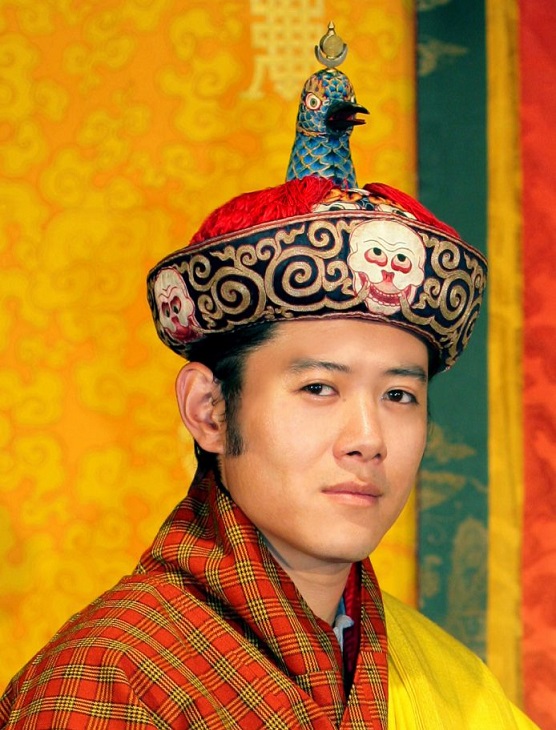
Wisdom from the Golden Throne
111th National Day - Samtse
Today, we are all gathered here with the people of Samtse to celebrate the most auspicious occasion of our 111th National Day.
The presence of His Majesty the Fourth Druk Gyalpo makes today even more special. This year, His Holiness the Je Khenpo is also among us, so this is a truly auspicious celebration – illustrative of the harmony and kinship that exists among our people.
On this special occasion, I extend my Tashi Delek to all Bhutanese celebrating in the twenty dzongkhags, and those who are studying and working abroad.
Our National Day celebrations are special because they provide an occasion for all Bhutanese people to recall and reflect on the immense sacrifices made by our forefathers in building this precious nation of ours and to rededicate ourselves to the service of the Tsawa-Sum. This year has been a momentous election year with the successful conduct of elections to both the National Council and the National Assembly. This success is attributed to the guidance provided by the Election Commission of Bhutan, and the support of the civil service, media, armed forces, and volunteers, and underpinned by the unwavering support and active participation of the people in exercising their franchise. I extend my heartfelt appreciation to all.
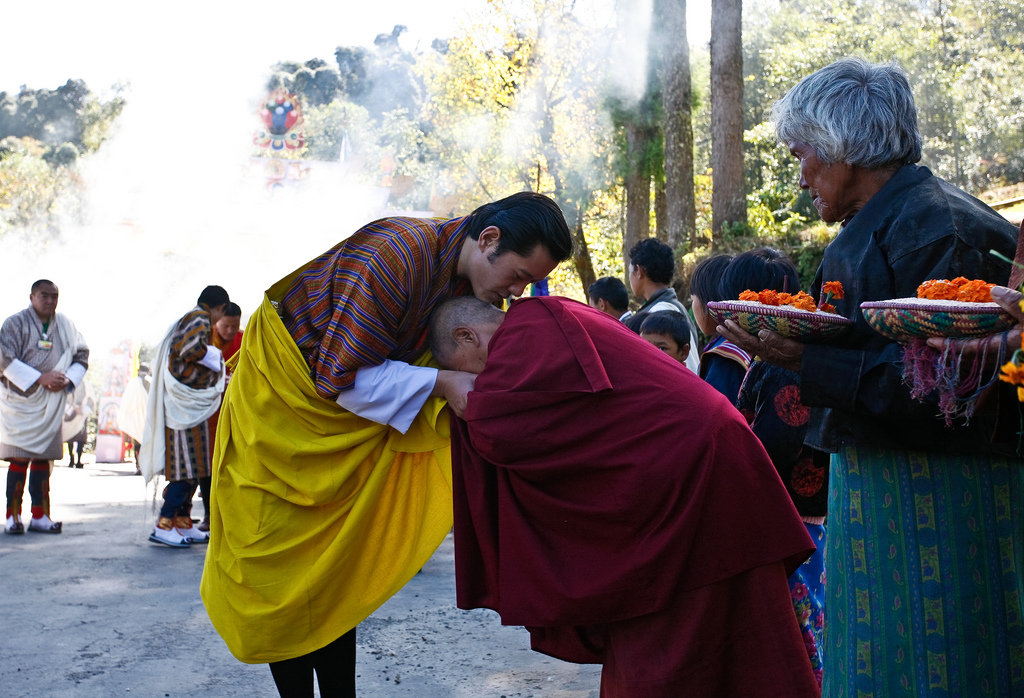
There were four Political Parties, which contested in the National Assembly elections, with 188 candidates in the Primary Round. Irrespective of whether they won or lost the elections, their participation has been a commendable service to the nation for which I extend my admiration and appreciation.
As you all know, the Druk Nyamrup Tshogpa was elected to form the government and the Druk Phuensum Tshogpa as the opposition. I would like to take the opportunity, on this special occasion of the National Day celebrations, to extend my Tashi Delek to our new Prime Minister, Dr. Lotay Tshering and the Opposition Leader, Dr. Pema Gyamtsho, and to all the other Members of Parliament.
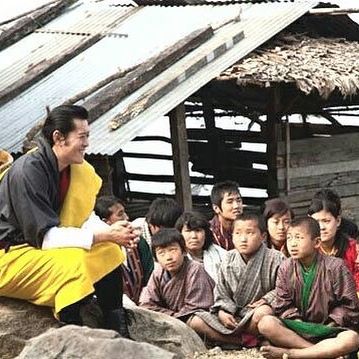
As the foundations of our democracy grow stronger by the year, accompanied by the continuous strengthening of the electoral process, we have gained invaluable experience, which will help us overcome challenges. Furthermore, with the blessings of the Triple Gem and the protection of our Guardian Deities, the prayers of the Clergy, and the unstinted support of our people, we have been successful in achieving all our important national goals.
The system of democracy in Bhutan is founded on the noble vision of His Majesty the Fourth Druk Gyalpo who has worked selflessly and tirelessly throughout His Reign to bring such extraordinary circumstances to our country today.
Therefore, I consider all of us – the King, the government, civil service, elected representatives, and the people of Bhutan – extremely fortunate to be granted this singular opportunity to serve our country. In the run up to the recent parliamentary elections, I listened to the campaign pledges and made sure not to miss a single debate on television. I was heartened to note that all the political parties were firm and committed, and the candidates were astute and competent.
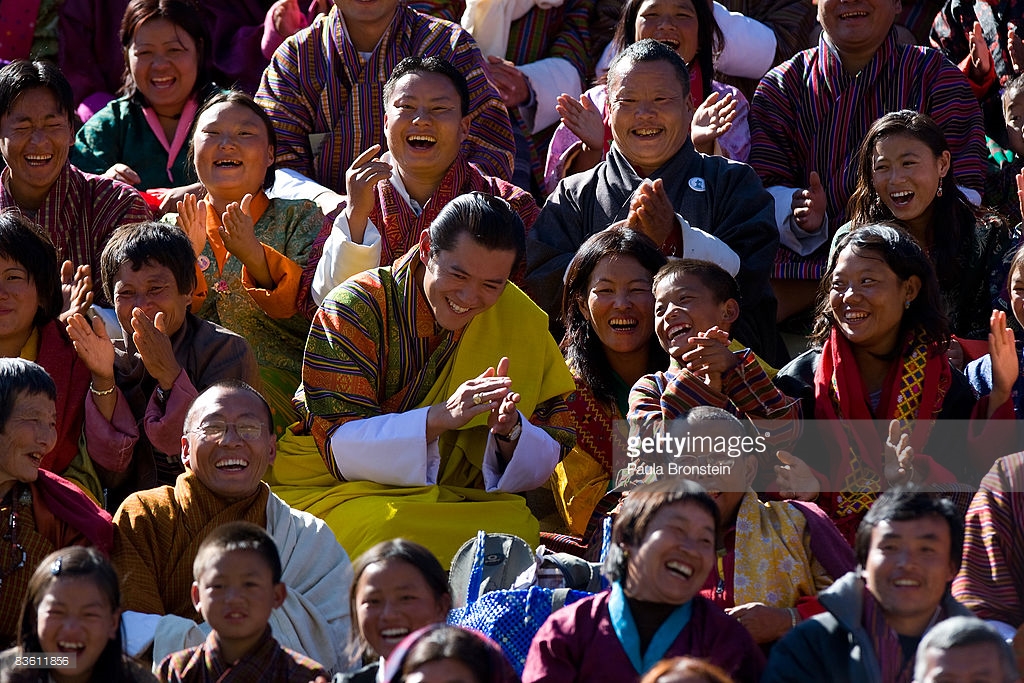
The political parties identified various ways to safeguard our future and achieve our national goals. Some chose to focus on reducing the growing economic inequality in our country and in narrowing the gap between the haves and have-nots. Others focused on the importance of self-reliance for the individual and the nation. Some felt that it was important to empower our people through the decentralisation process and others directed their attention to eradicating corruption by promoting good governance.
Notwithstanding the different approaches, all the political parties pledged to work for the wellbeing of our people through their resolutions: helping farmers address issues related to human-wildlife conflict; addressing problems caused by water scarcity; repairing existing roads and building new roads; improving mobile and digital connectivity; helping farmers market their farm produce and earn better returns for their hard work; the underlying objective being to increase the income of our people. The political parties also identified various important areas: enhancing access to and improving the quality of healthcare in the country; providing higher quality education for our children; ensuring the wellbeing of our youth; and creating greater employment opportunities. In addition, the political parties pledged to help improve infrastructure, bolster our hydropower sector and strengthen the private sector.
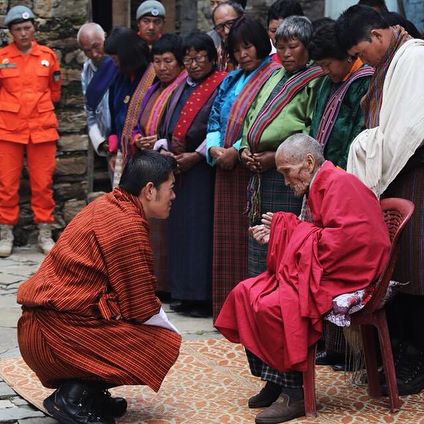
There was a deep emphasis placed on improving good governance, with pledges to: strengthen the rule of law, establish better mechanisms for checks and balances, enhance transparency, and improve efficiency in the delivery of public services. The parties also expressed their concerns about the increasing national debt, growing corruption, and a number of other issues of importance to the country.
In essence, I was deeply heartened to note that all the political parties were committed to strengthening our sovereignty, peace and unity; achieving equitable socio-economic development; and ensuring the long-term welfare of the people and country, in line with our national objective of building a Just and Harmonious Society guided by the noble principles of Gross National Happiness. The vision of their pledges clearly reflected our aspirations as a nation, and I commend all the parties and candidates who participated in the elections.
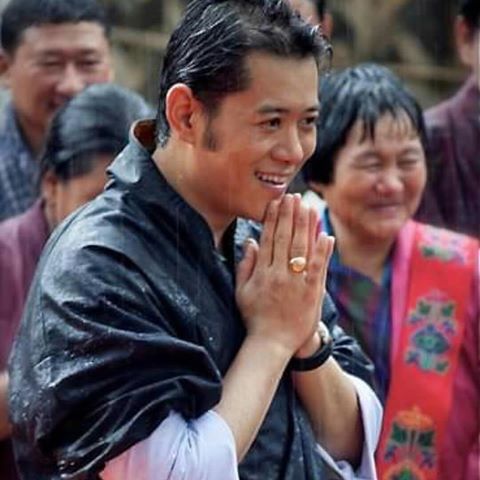
During the National Day celebration in 2013, I spoke at length about the important roles and responsibilities of the civil service. Five years later, I feel that it is an appropriate time to, once again, reflect on the important services provided to the nation by civil servants as a new government takes office and prepares to implement plans of national importance.
In 2006, when I became King, the budget for the 9th Five Year Plan was Nu 87 billion. In the 10th Plan the budget increased to Nu 148 billion, and in the 11th Plan to Nu 223 billion. Now, as we embark on the 12th Five Year Plan, the budgetary outlay is expected to exceed Nu 300 billion.
In addition to the above plan outlays, there are a number of major ongoing hydro power projects including the Punatsangchu I, Punatsangchu II, Mangdechu and Nikachu Projects. We have also begun discussions to construct the Sankosh Hydro Power Project, which would be one of the largest hydropower projects in the country.
In my view, there will be an immense increase in both the magnitude and scope of the national development plans considering the goals of the 12th Plan and the anticipated activities in the hydropower sector. As the budget expands and the quantum of work increases, the associated risks are also magnified. Thus, it is critical for our civil servants to be more alert, concerned, prepared, and mindful than ever before.

In a democracy, elected governments serve a fixed term and, irrespective of how well meaning the government is and how well they perform, their fate rests in the hands of the electorate and we will inevitably see periodic changes in government. Therefore, our civil service has the responsibility to ensure continuity in pursuit of our timeless national goals and objectives.
Our most important long term national goals include: enhancing our security and sovereignty; promoting our unique traditions and cultural heritage; conserving our environment; promoting peaceful and harmonious coexistence with other nations, and enhancing the reputation and national identity of our glorious nation of Palden Drukpa.
Our greatest wealth in human resources is epitomised by our civil servants who serve in every Dzongkhag, Gewog, and village, and should know intimately the most pressing issues, and the concerns and aspirations of the people. At the same time, they are well travelled around the world, so we expect them to be well informed and aware of the outside world. They should be up-to-date with advancements in technology and new practices, and able to use this knowledge for the benefit of our country.
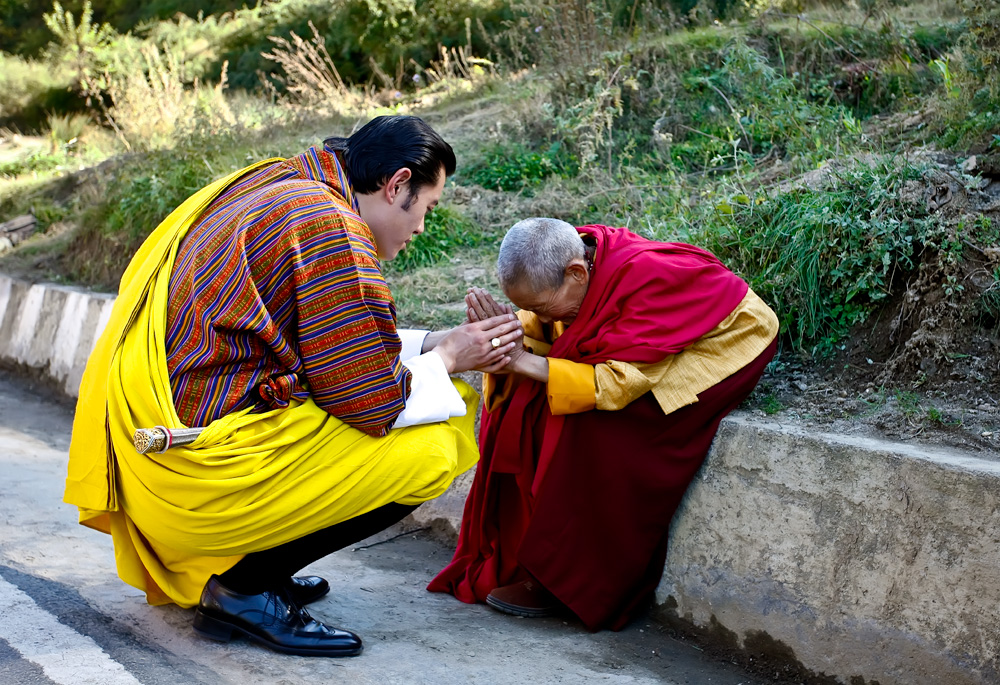
Thus, it is important that the civil servants, equipped with immense knowledge, skills, and experience, render their unstinted support to the government’s endeavor aimed at improving the welfare of the people.
As a developing country, we have limited resources. We must manage our available resources wisely, minimize waste, and ensure that all our resources are directed at improving the well being of the people, and in fulfilling our national vision. The civil service is tasked with the oversight, management, administration, and disbursement of funds for governance. So the responsibility falls squarely on the shoulders of our civil servants to ensure efficiency and effectiveness in utilizing our scarce resources.
We have more than 29,000 civil servants working in the various ministries and agencies of the government. There are around 13,000 personnel in the armed forces, more than 7,700 people work for the various companies under the Druk Holding and Investments, and another 3,300 work for other State Owned Enterprises under the Ministry of Finance. We have around 1,500 elected representatives. This brings the total number of public servants in Bhutan, whose salaries and benefits are granted by the state, to around 54,000.
On one hand, this is good news for us – it means that there is one public servant for every 13 Bhutanese citizens.
However, with such large numbers, there is a risk that our public servants can become an impediment to national development and progress. The greatest danger will come from their complacency and indifference.
Our public servants will fail in their duty if they do not learn from past mistakes and correct them, if they are unreceptive to feedback, if they lack accountability, if they are unresponsive to new ideas and solutions, if they have poor communication and coordination, or if organizations expand and multiply without direction or coherent vision. In this case, even our best intentions will bear no results. Instead, all we will have are missed opportunities and a debilitating waste of time and resources.
If, in the next 10 to 15 years, we achieve all our national objectives, the credit will go to our public servants. However, if we fail, it will mean that the public servants have failed. We are a small country – a country like no other. Therefore, we are in a position to be more efficient and more effective than others. What others can do in a decade, we can and should accomplish in a few years. What others manage in years, we can and should achieve in months.
It must always be our constant endeavor to perform better, carry out our tasks with greater efficiency, effectiveness and grace, and become exceptional in the world.
As I have said many times before– if we are firm in our resolve, we will succeed and overcome the constraints posed by limited resources. Looking ahead to work together in order to build an extraordinary, strong, secure, and peaceful future for Bhutan.
My National Day prayers for our precious country remains the same. May the sun of peace continue to shine forever upon Palden Drukpa – Guru Rinpoche’s Baeyul, blessed by Zhabdrung Ngawang Namgyel and His Majesty the Fourth Druk Gyalpo. May each year always be better than the last, and may the people of Bhutan enjoy happiness and prosperity for all time to come.